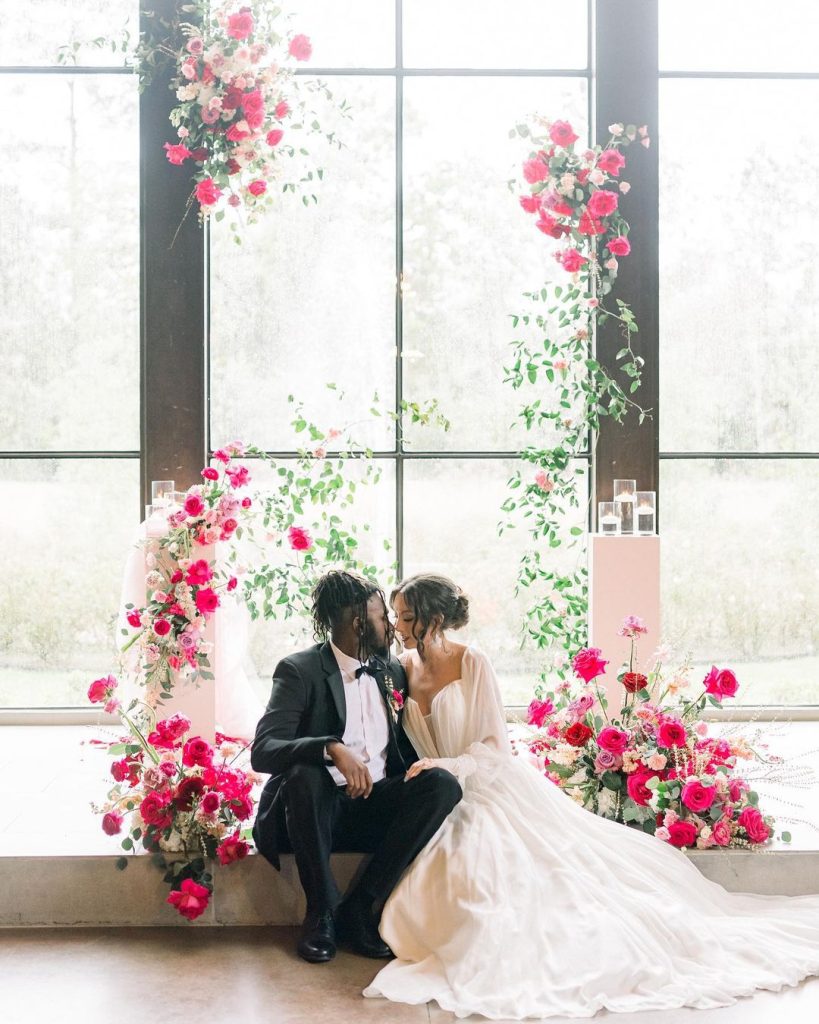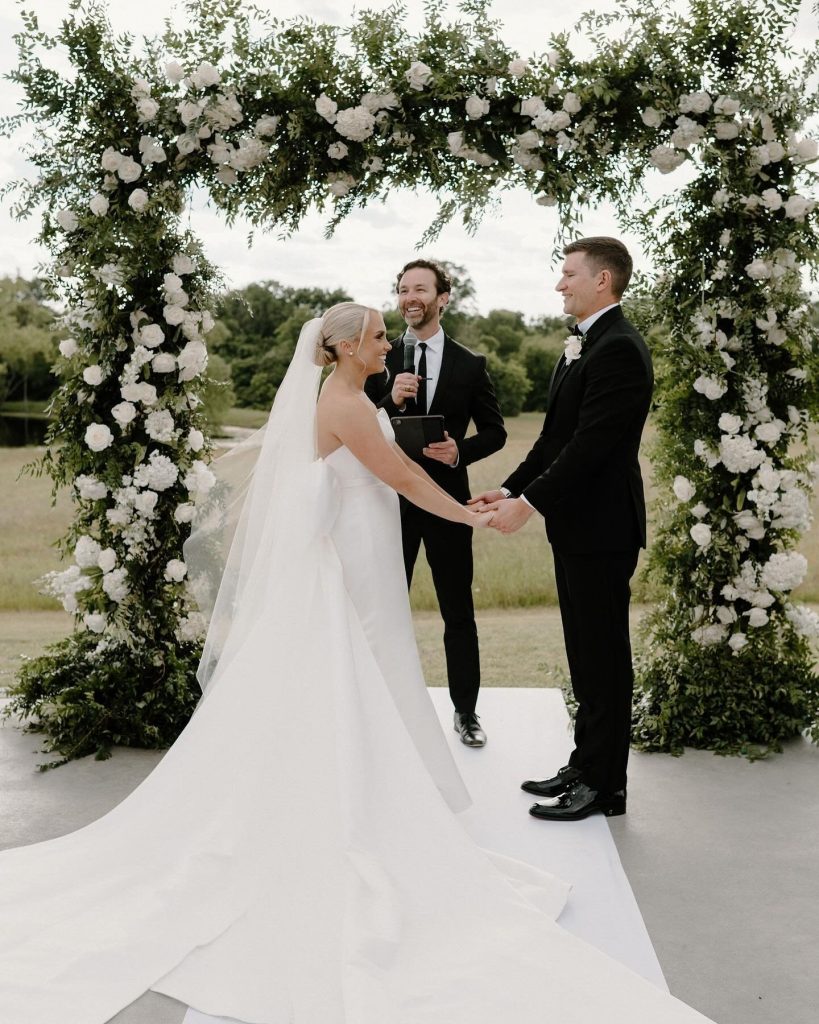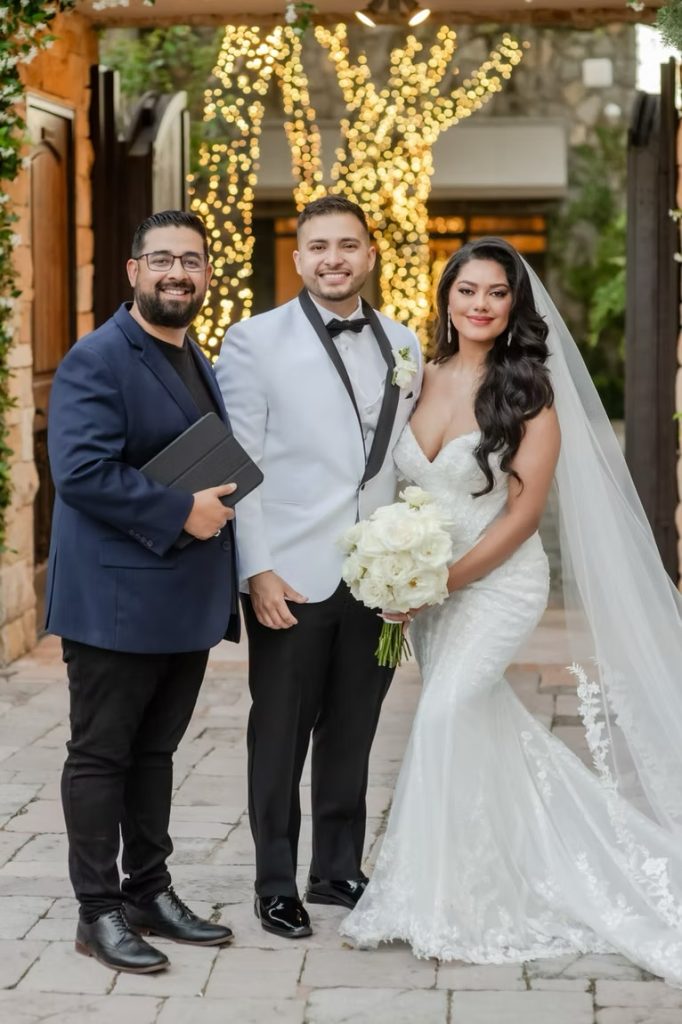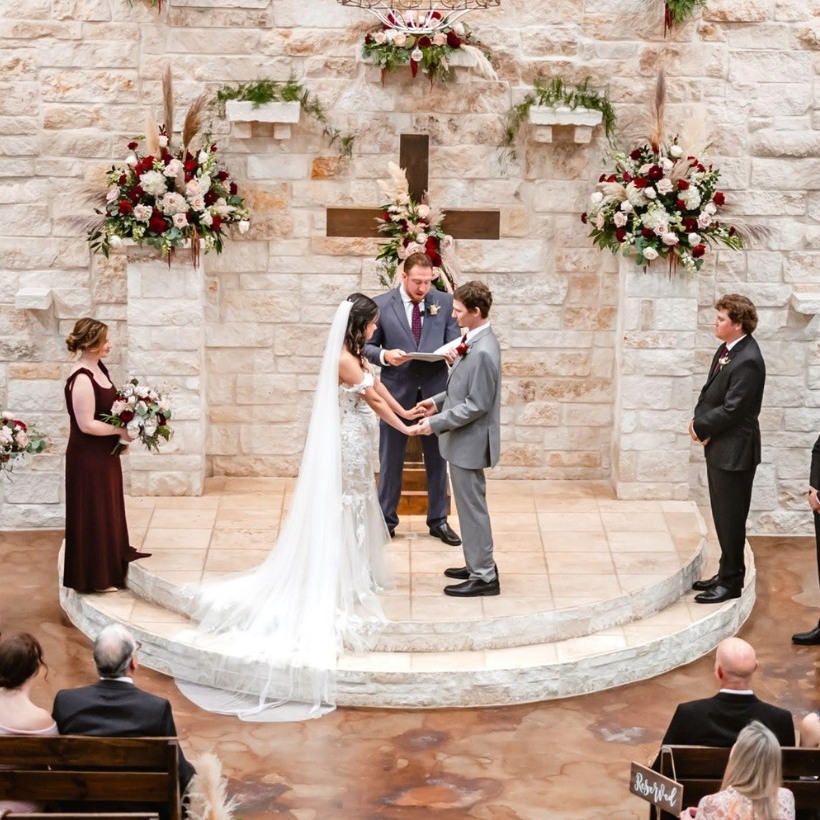The wedding planning process involves many decisions, but choosing your wedding officiant is one of the most significant. We are to offer guidance and help you make sure your bid day is in the hands of the right person! Keep reading to learn what you need to know when booking a Houston wedding officiant.
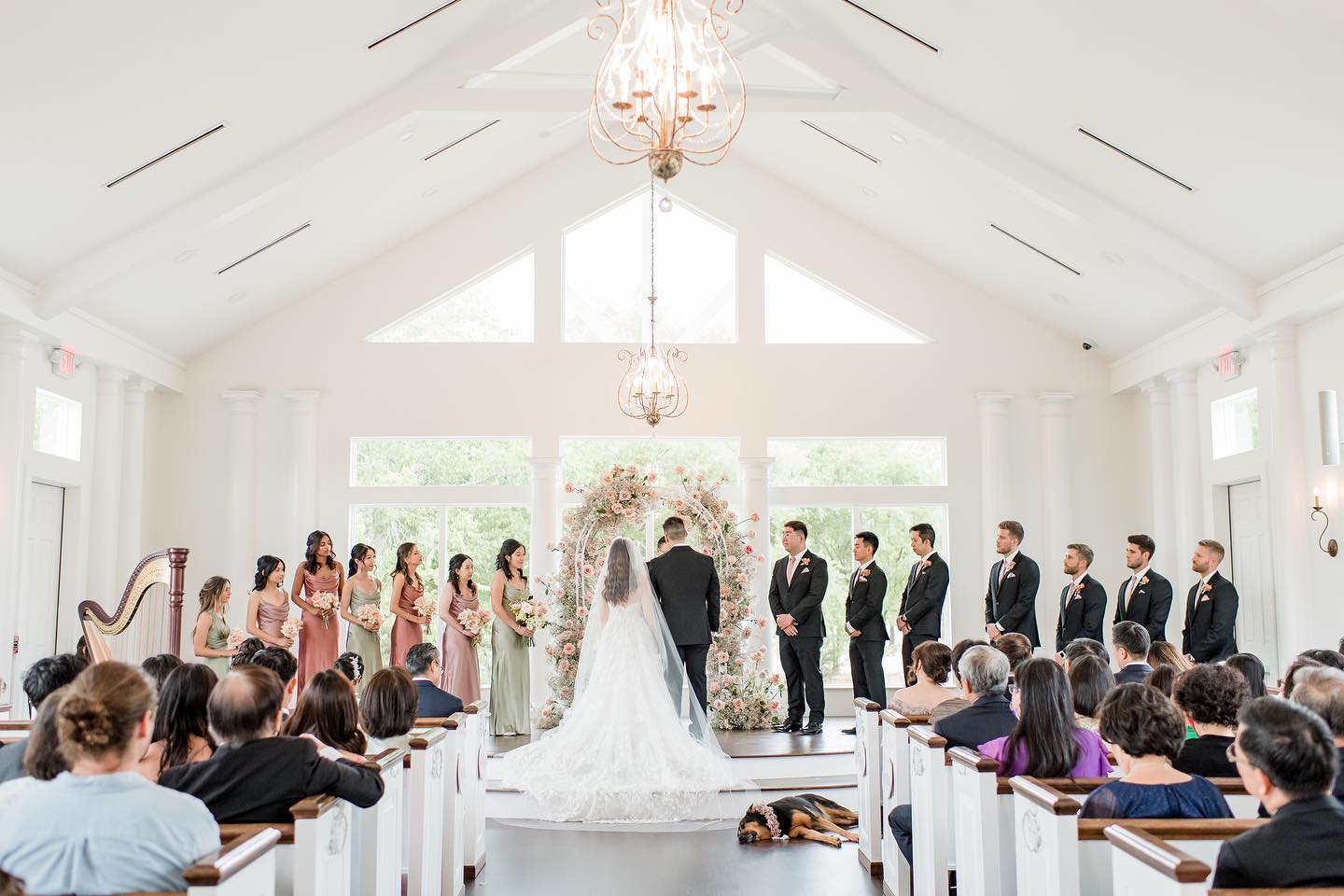
Photo // Emily Chappell Productions
Early Bird Gets the Worm
To ensure that the perfect officiant oversees your wedding ceremony, it’s always good to get a head start on the search. It’s important to give yourself enough time to find the perfect person to marry you and your fiancé without feeling rushed. Start looking for an officiant far in advance so you can take your time interviewing and researching the right people!
Decide on the Type
Wedding officiants are not one size fits all – there are various types to consider and choose from! To have the wedding of your dreams, you need to determine which type of officiant is best for you. One way to make this decision is to envision your ideal ceremony, including vows, music, and overall atmosphere! Upon making these determinations, you’ll better understanding of which officiant is right for you.
Religious Wedding Officiant
If you envision a religious ceremony highlighting your faith, a religious wedding officiant will likely be your best bet. A religious wedding officiant is often a rabbi, minister, priest, pastor, or spiritual leader who can create a ceremony calling attention to your beliefs. The officiant could be a religious leader that you have known for years or someone new that you have found to appreciate.
Professional Wedding Officiant
These are officiants who are licensed and experienced in performing marriage ceremonies. They normally have a great deal of experience, so they bring professionalism and poise to your ceremony. Since professionals normally specialize in certain areas, like interfaith or secular ceremonies, a couple might consider hiring one if they do not intend to have a religious ceremony.
Civil Wedding Officiant
To maintain a straightforward wedding style, couples may consider a civil wedding officiant. This type of officiant performs marriage ceremonies according to state laws. A civil officiant can be a judge, mayor, notary, or another title that can assist you in getting married within the laws of your state!
Ordained Family Member or Friend
One way to personalize your wedding is to have a family member or close friend officiate! Not only does it give your ceremony a personal touch, but having an officiant you are familiar with can be incredibly comforting. Furthermore, this option is relatively easy and inexpensive! Plus, you’re helping your family member or friend create a memory they will never forget.
Do Your Homework
This step requires you and your significant other to do some digging. Once you have decided on a type of officiant, it is always wise to get additional information. Get referrals from newlywed friends or research online about potential officiants. This can help you learn about the executions of their past weddings while also introducing you to their credentials!
Share the Same Values
Once you set your sights on a few officiants, it is time to pay close attention to whether you can genuinely see them officiating your wedding. There are a few qualities you want to look for – a crucial one is making sure they have the same values as you and your fiancé. By verifying you, your significant other, and your officiant share similar beliefs, you will feel more comfortable expressing your wedding-day wishes and vision for the ceremony.
Pick a Confident Speaker
A final thing to look for in an officiant is their presence while speaking. Before committing to an officiant, make sure they are comfortable speaking in front of groups of people, ensuring that the ceremony is clear and orderly. By choosing a confident speaker, the ceremony will flow easily and lack any awkward silences that could come with stage fright or inexperience, making it a happy moment to look back on.
You’ve picked your officiant, and now it’s time to start working on the ceremony! Think about what you want included – unity ceremony, songs, readings, etc. – then get to work on those vows! Here’s our guide to writing your own.





























































